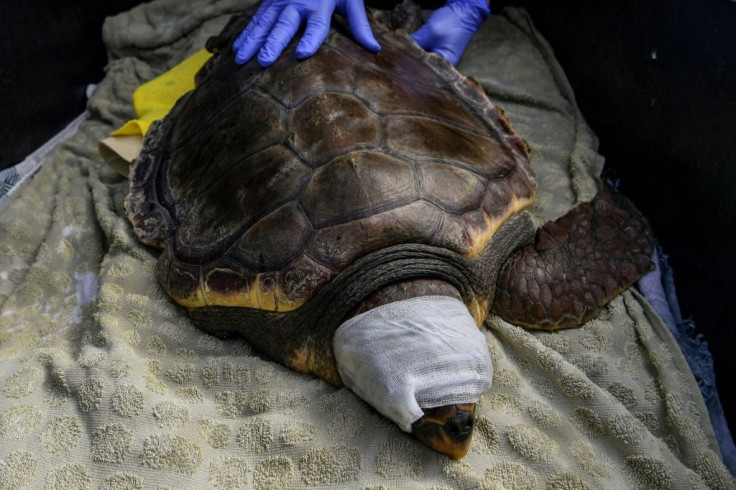Seldom Seen Turtle Species Shows Up On Kailua Beach

An uncommon turtle species in Hawaii made an appearance on Kailua beach last month. It was reportedly seen near Oahu’s Windward side.
At Kailua Beach Park, two visitors, Ben Zitney and Sarah Wagner, were sunbathing right next to the turtle’s nest unknowingly. They were astonished to see dozens of hatchlings underneath a beach towel while some other tourists were also present.
“There was maybe three or four of them at first and then he pulled back a towel that he had on the ground and there was just more than just a dozen, like dozens of them just crawling out," Hawaii News Now quoted Zitney as saying. "They just looked like little wind up toys ― just going towards the water,” she added.
The duo asked the local experts to get more details on the turtles.
Eventually, a National Oceanic and Atmospheric Administration (NOAA) scientist recognized them as olive ridley turtles, specifically found in Central America.
Scientists were stunned how the nest went unnoticed at popular Kailua Beach.
“It’s a highly transited beach and that might be why the nest was never observed in the first place when it was initially laid because it gets a lot of foot traffic," stated Alexander Gaos, an NOAA marine turtle research ecologist.
“Usually when you find a turtle nest, it’s because you see the tracks from the female that comes out at night. But if you get a lot of people walking in the morning that track might have been covered up,” he added.
According to Gaos, this was the seventh nest belonging to the species found in the main Hawaiian Islands in a period of 30 years. They had also found 72 eggs in the nest.
According to a report by Al Jazeera on April 14, 2019, the “last female” of a rare turtle species died in China zoo. The animal was one of the four Yangtze giant softshell turtles, rarest turtle species, said to exist in the world. It lived in the Suzhou zoo which also houses a male Yangtze giant softshell turtle.
© Copyright IBTimes 2025. All rights reserved.






















